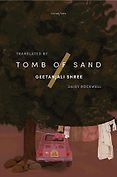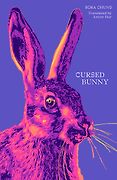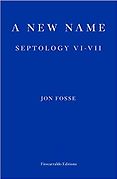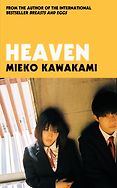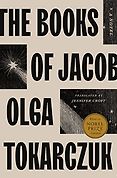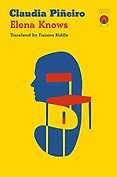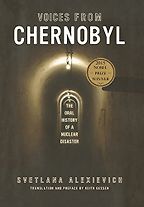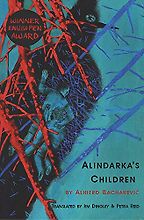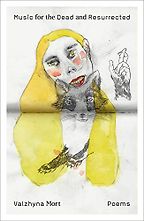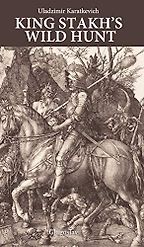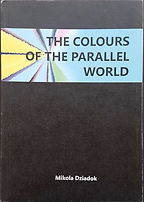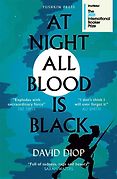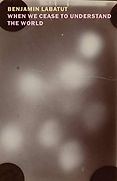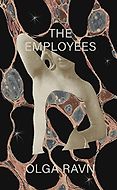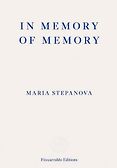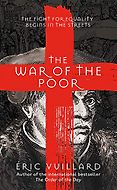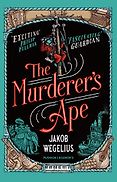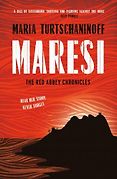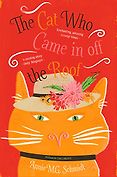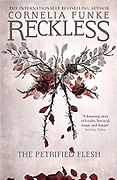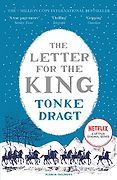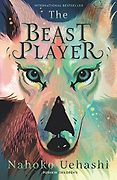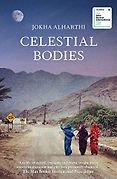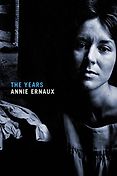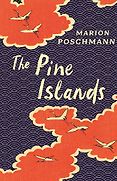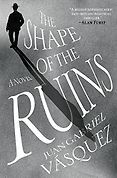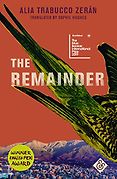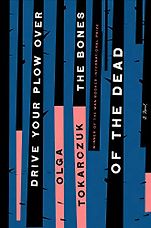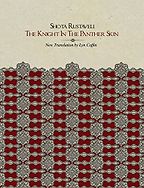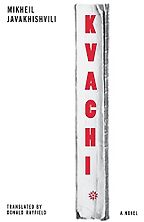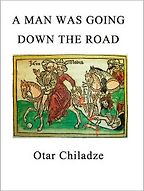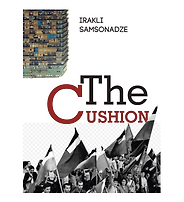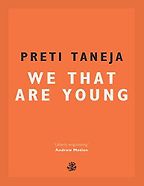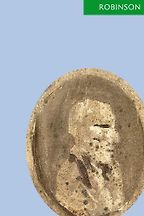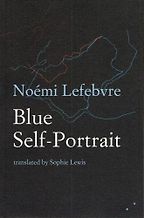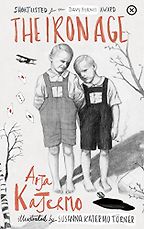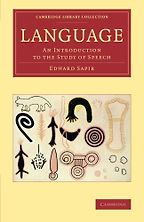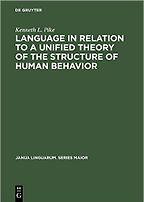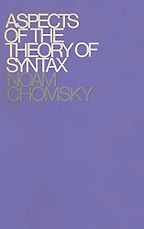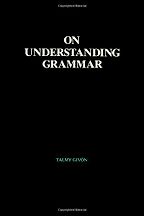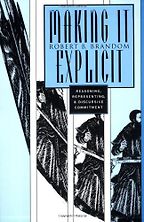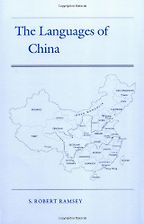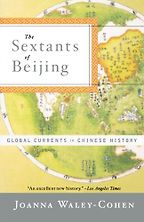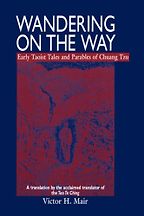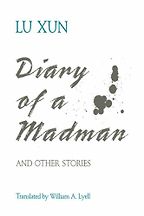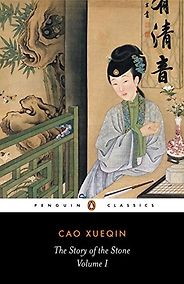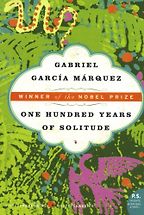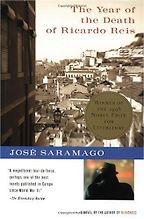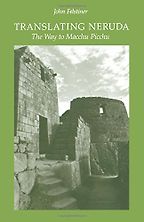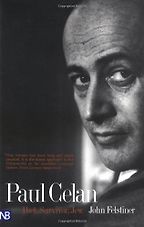Translation
Last updated: August 07, 2024
-

1
Tomb of Sand
by Geetanjali Shree, translated by Daisy Rockwell -

2
Cursed Bunny
by Bora Chung, translated by Anton Hur -

3
A New Name: Septology VI-VII
by Jon Fosse, translated by Damion Searls -

4
Heaven
by Mieko Kawakami, translated by Sam Bett and David Boyd -

5
The Books of Jacob: A Novel
by Olga Tokarczuk, translated by Jennifer Croft -

6
Elena Knows
by Claudia Piñeiro, translated by Frances Riddle
The Best of World Literature: The 2022 International Booker Prize Shortlist, recommended by Frank Wynne
The Best of World Literature: The 2022 International Booker Prize Shortlist, recommended by Frank Wynne
The International Booker Prize celebrates the best fiction in translation published over the previous year. Frank Wynne, acclaimed translator and chair of the 2022 judging panel, tells Five Books about the six novels that made the shortlist, and reminds readers that world literature need not be tough, consumed only in the interests of self-improvement—but is often joyful, surprising and full of feeling.
Five of the Best Works of Belarusian Literature, recommended by Hanna Komar
Writers have been subject to persecution and repression in Belarus, and increasingly so in the aftermath of the protests that swept the nation in 2020 and 2021. Owning or distributing books deemed ‘extremist’ by the Lukashenko government can be enough to land you in jail. Here, the poet and activist Hanna Komar selects five of the best works of Belarusian literature that offer a glimpse of the culture and mindset of this post-Soviet nation, and the bravery of those who continue to fight for political freedom.
-

1
At Night All Blood Is Black
by David Diop, translated by Anna Moschovakis -
2
The Dangers of Smoking in Bed: Stories
by Mariana Enríquez, translated by Megan McDowell -

3
When We Cease to Understand the World
by Benjamin Labatut, translated by Adrian Nathan West -

4
The Employees: A workplace novel of the 22nd century
by Olga Ravn, translated by Martin Aitken -

5
In Memory of Memory
by Maria Stepanova, by Sasha Dugdale -

6
The War of the Poor
by Éric Vuillard, translated by Mark Polizzotti
The Best of World Literature: The 2021 International Booker Prize Shortlist, recommended by Lucy Hughes-Hallett
The Best of World Literature: The 2021 International Booker Prize Shortlist, recommended by Lucy Hughes-Hallett
Every year the International Booker Prize judges read dozens of novels from around the world, which are newly translated into English. Here Lucy Hughes-Hallett—award-winning author and chair of this year’s judging panel—talks us through the six books that made their 2021 shortlist of the best world literature.
-

1
The Murderer's Ape
Jakob Wegelius, translated by Peter Graves -

2
Maresi
Maria Turtschaninoff, translated by Annie Prime -

3
The Cat Who Came in off the Roof
Annie M.G. Schmidt, translated by David Colmer -

4
Reckless: The Petrified Flesh
Cornelia Funke, translated by Oliver Latsch -

5
The Letter for the King
Tonke Dragt, translated by Laura Watkinson -

6
The Beast Player
Nahoko Uehashi, translated by by Cathy Hirano
The Best Kids’ Books in Translation, recommended by Adam Freudenheim
The Best Kids’ Books in Translation, recommended by Adam Freudenheim
There is no shortage of great kids’ books written in English, but reading books in translation can open up whole new worlds and surprising perspectives. Adam Freudenheim, managing director of Pushkin Press, talks us through some of his favourites among the many books he’s published for kids, translated from other languages.
-

1
Drive Your Plow Over the Bones of the Dead
by Olga Tokarczuk, translated by Antonia Lloyd-Jones -

2
Celestial Bodies
by Jokha Alharthi, translated by Marilyn Booth -

3
The Years
by Annie Ernaux & translator - Alison Strayer -

4
The Pine Islands
by Jen Calleja & Marion Poschmann -

5
The Shape of the Ruins
by Juan Gabriel Vásquez, translated by Anne McLean -

6
The Remainder
by Alia Trabucco Zerán & Sophie Hughes (translator)
The Best Novels in Translation: the 2019 Booker International Prize, recommended by Bettany Hughes
The Best Novels in Translation: the 2019 Booker International Prize, recommended by Bettany Hughes
Bettany Hughes, author of Istanbul: A Tale of Three Cities and chair of this year’s Booker International Prize judging panel, talks us through the six books they have shortlisted for the title of best novel in translation.
-

1
The Knight in the Panther Skin
by Lyn Coffin (translator) & Shota Rustaveli -

2
Kvachi
by Donald Rayfield (Translator) & Mikheil Javakhishvili -

3
A Man Was Going Down the Road
by Donald Rayfield (Translator) & Otar Chiladze -

4
The Lame Doll
by Ani Kopaliani (translator), Besik Kharanauli & Timothy Kercher (translator) -

5
The Cushion
by Elizabeth Heighway (translator), Irakli Samsonadze & Philip Price (translator)
The Best of Georgian Literature, recommended by Gvantsa Jobava
The Best of Georgian Literature, recommended by Gvantsa Jobava
How does a country left in ruins by 70 years of Soviet oppression rebuild its literature? It starts from scratch and breaks all the rules. Gvantsa Jobava reveals the riches of Georgian literature, from 12th-century feminist epics to radical, experimental accounts of a post-Independence underworld
Neil Griffiths recommends the best Indie Fiction of 2017
Publishing took a hit in the 2007-8 financial crisis, but tough times may just have changed the industry for the better. As the big guys consolidate and tighten their margins, cracks grow wider and more books slip through… Which is good news for the publishers ready to catch them. The novelist Neil Griffiths, founder of a new prize for small presses, discusses 2017’s best indie books and celebrates publishers who ‘think like you, read like you, and live books like you’
-

1
Language: An Introduction to the Study of Speech
by Edward Sapir -

2
Language In Relation To A Unified Theory Of The Structure Of Human Behaviour
by Kenneth Pike -

3
Aspects of the Theory of Syntax
by Noam Chomsky -

4
On Understanding Grammar
by Talmy Givón -

5
Making It Explicit: Reasoning, Representing & Discursive Commitment
by Robert Brandom
The best books on Language and Thought, recommended by Daniel L. Everett
The best books on Language and Thought, recommended by Daniel L. Everett
The linguist argues that all language has a basis in culture and explains how Chomsky is like Freud: crucial, but crucially wrong. He chooses five of the best books on linguistics.
Books every Chinese Language Learner Should Read, recommended by Chris Livaccari
China covers a vast territory, and is far more ethnically and culturally diverse than many outsiders assume. Chris Livaccari, a veteran Chinese language teacher, recommends books he believes every Chinese language learner should read.
The best books on Translation, recommended by Edith Grossman
The award-winning literary translator Edith Grossman discusses books on and of translation that inspired her, and considers the trade-off that every translator faces, between fidelity and meaning
